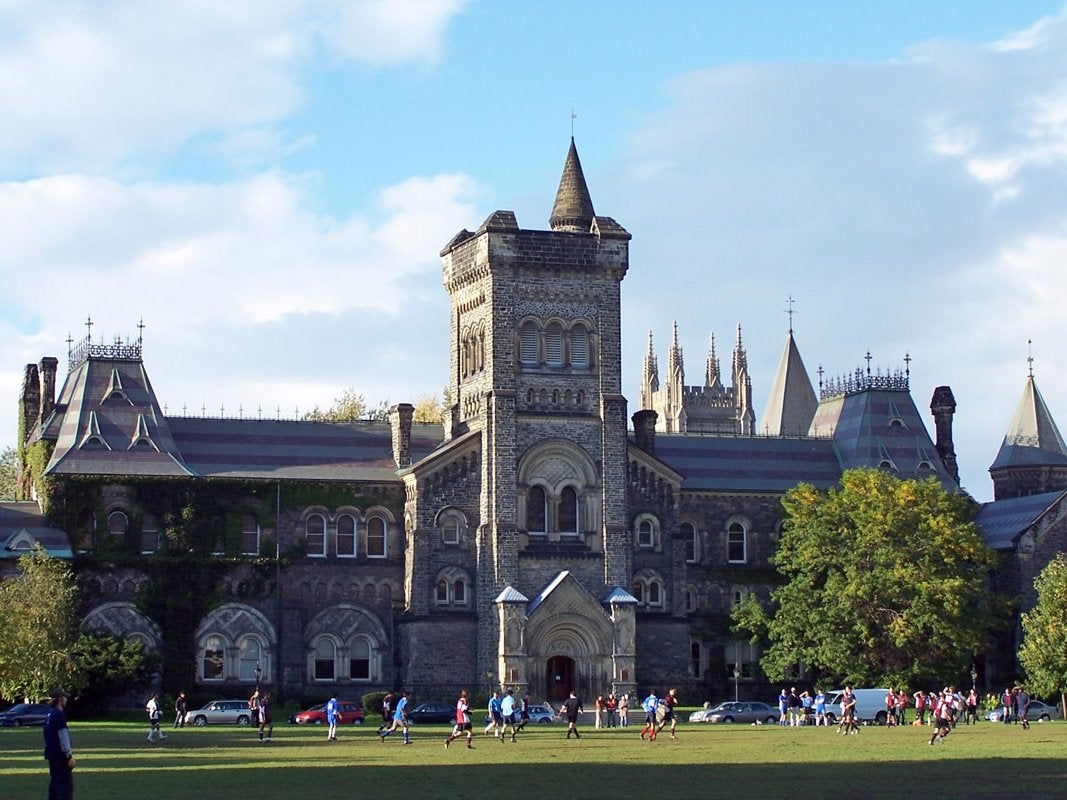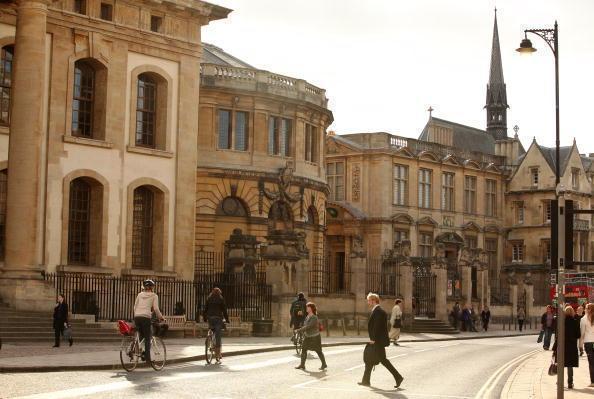The 21 global universities that produce the most employable graduates

Your support helps us to tell the story
From reproductive rights to climate change to Big Tech, The Independent is on the ground when the story is developing. Whether it's investigating the financials of Elon Musk's pro-Trump PAC or producing our latest documentary, 'The A Word', which shines a light on the American women fighting for reproductive rights, we know how important it is to parse out the facts from the messaging.
At such a critical moment in US history, we need reporters on the ground. Your donation allows us to keep sending journalists to speak to both sides of the story.
The Independent is trusted by Americans across the entire political spectrum. And unlike many other quality news outlets, we choose not to lock Americans out of our reporting and analysis with paywalls. We believe quality journalism should be available to everyone, paid for by those who can afford it.
Your support makes all the difference.Times Higher Education has published its annual "Global University Employability Survey," a ranking of universities that turn out graduates with the best job prospects.
The data was collected from a wide-ranging survey of recruiters and managing directors and based on a variety of weighted factors that can make a graduate employable.
The skills and experiences deemed most important for employability were professional experience, a high degree of specialisation, proficiency in at least two foreign languages, extracurricular activities, an excellent academic record, and graduation from a "top" university.
While universities in the US, the UK, and Japan dominate the top of the ranking, there's also room for institutes in other parts of Europe, North America, and Asia.
Take a look.
21. HEC Paris, France — The French business school specialises in education and research in business management. It scores particularly highly in the 2016 World University Ranking for its international outlook.
20. Tokyo Institute of Technology, Japan — Like many institutions near the top of the list, Tokyo Tech specialises in science and engineering. Students work as laboratory members, and often collaborate with senior researchers.
19. University of California at Berkeley, US — The public research university is regarded as one of the most prestigious state universities in the US. Its faculty has won 19 Nobel Prizes, mostly in physics, chemistry, and economics.

18. McGill University, Montreal, Canada — One of just three English-language universities in French-speaking Quebec, McGill enrolls roughly 40,000 students. It was established in 1829 as a faculty of medicine, and it continues to specialise in that area.
17. Peking University, Beijing, China — Peking is a member of the C9 league, the group of nine elite universities in China. It counts Mao Zedong, the autocratic founding father of the People's Republic of China, among its alumni.
16. Imperial College London, UK — The college has about 15,000 students and 8,000 staff, and it focuses on science, engineering, medicine, and business.
15. National University of Singapore — Singapore's flagship university spans 17 schools across three campuses. It has particularly strong engineering and technology faculties.
14. University of Toronto, Canada — Founded in 1827, the university offers more than 900 courses to more than 60,000 students. It is known as a centre of innovation and research and was the birthplace for scientific breakthroughs including the discovery of insulin and the invention of the electron microscope.

13. Hong Kong University of Science and Technology — Founded in 1991, the institute places a particular emphasis on science, technology, engineering, and business management.
12. Columbia University, New York, US — The private Ivy League research university in Manhattan's Upper West Side counts among its alumni Nobel Prize winners including outgoing US President Barack Obama and economist Joseph Stiglitz.
11. Boston University, Massachusetts, US — The private research university offers medical, dental, business, and law degrees through 18 schools and colleges on two urban campuses.
10. University of Tokyo, Japan — The leading research institution has a staff-to-student ratio of just seven, one of the lowest of any university on the list. It is also one of the few universities on our list that primarily offers liberal-arts programmes.
9. Princeton University, New Jersey, US — Princeton is one of the leading Ivy League universities and is acclaimed for both its teaching and its research. It has fewer than 10,000 students, 98% of whom live on campus.
8. Technical University of Munich, Germany — Alumni of the university, which specialises in the natural sciences, include Rudolf Diesel, the inventor of the diesel engine.
7. University of Oxford, UK — Oxford is the oldest university in the English-speaking world, with evidence of teaching having taken place as far back as 1096. Its alumni list includes 26 Nobel Prize winners and more than 30 modern world leaders, including Bill Clinton and Aung San Suu Kyi.

6. Yale University, Connecticut, US — The prestigious Ivy League research university is one of the few on the list that follows a liberal-arts programme. Undergraduate students follow a curriculum covering humanities and arts, sciences, and social sciences before choosing a departmental major.
5. Stanford University, California, US — Less than an hour's drive from San Francisco, the area near Stanford is known for its entrepreneurial spirit and has become closely associated with the Silicon Valley tech hub.
4. University of Cambridge, UK — The fourth-oldest-surviving university in the world houses 150 faculties across six schools: arts and humanities, biological sciences, clinical medicine, humanities and social sciences, physical sciences, and technology. It is among the best universities in the world for physical and life sciences.
3. Harvard University, Massachusetts, US — One of the most prestigious universities in the world, Harvard has more than 45 Nobel laureates and 30 heads of state among its alumni.

2. Massachusetts Institute of Technology, US — Established in 1861, the private research university aims to "further knowledge and prepare students in science, technology and other fields of study that will best benefit the nation and the world today." It lays claim to 85 Nobel laureates and 58 National Medal of Science winners.
1. California Institute of Technology, US — Known as Caltech, the Pasadena campus is renowned as a hub of science and engineering research. It came second overall in the 2016 World University Ranking.
Read more:
• This chart is easy to interpret: It says we're screwed
• How Uber became the world's most valuable startup
• These 4 things could trigger the next crisis in Europe
Read the original article on Business Insider UK. © 2016. Follow Business Insider UK on Twitter.
Join our commenting forum
Join thought-provoking conversations, follow other Independent readers and see their replies
Comments